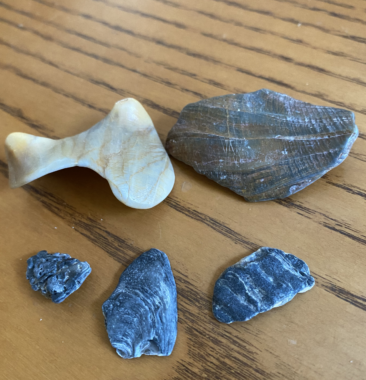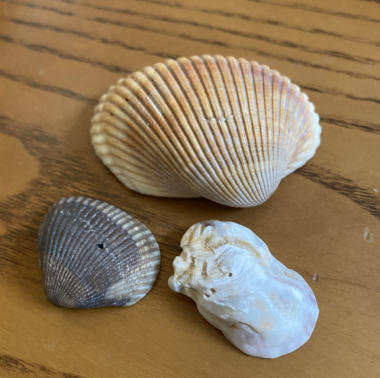There’s so much to gain: Finding the upside to being ‘broken’ with MS
A writer explains how imperfection can lead to beauty, wonder, and possibility
Written by |

I have a friend who’s truly blessed. Aside from the typical struggles that come with being an adult, he has few problems. Seriously. Neither he nor a loved one has had any major medical issues. No one in his immediate family has passed away yet, and while he’s not rolling in it like Scrooge McDuck, he’s always had enough to get by.
Part of me envies him. I’d love to not have to live with multiple sclerosis (MS), to go through my days without worry, to not make accommodations for my disease. But that ain’t the way it worked out.
However, the other part of me — the steel-eyed realist who knows that life isn’t all sunshine and gummy bears and that sometimes making it in this world means doing hard things — worries for him. He’s slightly older than I am. How is he going to handle it when the surgery, the diagnosis, or the death comes? Will he be able to cope? How can he fight back without any armor?
Because if there’s one thing that living with MS has taught me, it’s resilience. I get knocked down in the dirt sometimes, but I always get up, dust myself off, and get back to it. I’ve grown stronger mentally, physically, and emotionally since my diagnosis 18 years ago. I wouldn’t recommend having MS to anyone, but I’d be a liar if I said it hadn’t changed me for the better in some ways.
Tyler Durden, the protagonist (or perhaps antagonist?) of Chuck Palahniuk’s “Fight Club,” says several profound things throughout the course of the novel. In one scene, for instance, he casually says, “I don’t want to die without any scars.” I read it 20 years ago when I was a fresh-faced undergraduate, but that line has stuck with me. It still resonates. No, scars aren’t always pretty. Sometimes they hurt. But they also come with a story or two — how we got them, how we’ve lived with them, how we’ve healed after gaining them.
Broken and beautiful
I thought about this the other day when I was picking up seashells at the beach. The Atlantic Ocean is somewhat stingy with its shells, in my humble opinion. Very few show up on the shore, and few arrive in one piece. Many are broken in half, others in countless pieces.

The “broken” shells I gathered on the beach. (Photo by Jamie A. Hughes)

The “whole” shells I gathered on the beach. (Photo by Jamie A. Hughes)
On my walk, I gathered a few of both and looked them over. Sure, the whole ones were pretty in their way. It was fun to find them in the moment, and I knew they’d look beautiful when I displayed them on my bookshelves. (Though I guess I could also put them in a basket on the back of my toilet. Why do we all do that?) But that’s it. There was no more story to them, nothing left to discover. No cause for wonder.
The pieces, on the other hand, were interesting for what they lacked. I wasn’t distracted by the whole, so I could focus on the parts. They’d become a kind of abstract art. One had an interesting pattern of stripes, another had mottled colors I was drawn to, and still another (likely part of a conch) was almost alien in shape without the rest of the shell to give it context. The imperfections, the incompletions, made it possible for them to be anything.
Thanks to MS, I’m like one of those fragmented shells. I’m still beautiful and compelling, but I’m far from simple. You can’t take one look, say you know me, and slap me on a shelf. I’m not complete. I’m still on the way to becoming whatever I’m going to be. And those with a discerning eye will see that while I’m not “whole” in the conventional sense, I’m far from shattered.
Note: Multiple Sclerosis News Today is strictly a news and information website about the disease. It does not provide medical advice, diagnosis, or treatment. This content is not intended to be a substitute for professional medical advice, diagnosis, or treatment. Always seek the advice of your physician or other qualified health provider with any questions you may have regarding a medical condition. Never disregard professional medical advice or delay in seeking it because of something you have read on this website. The opinions expressed in this column are not those of Multiple Sclerosis News Today or its parent company, Bionews, and are intended to spark discussion about issues pertaining to multiple sclerosis.




Doug Glener
A beautiful post beautifully written.
Jamie Hughes
Thanks so much, Doug! I appreciate you reading my work and taking the time to leave such a wonderful comment.
Steve Johns
I find, and I tell people, that there is one good thing about PPMS. It gives me something to winge about.
Jamie Hughes
Didn't Bonnie Raitt sing about that? :)